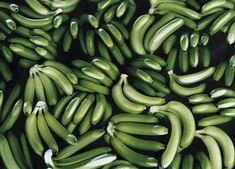
Ecuador and five fellow Latin American banana producers have stepped up their demands for World Trade Organisation arbitration in their dispute with the European Union.
The latest development, at a meeting on Wednesday, raises the prospect of another long trade battle over the EU's banana import regime, according to most analysts and it could have a wider impact on trade negotiations at a global level.
Brussels has already directly accused the Latin American conttingent of deliberately delaying the arbitration request to drag out the procedure until a WTO ministerial meeting in Hong Kong in December. The Financial Times reports that “trade diplomats fear a repeat of events in Doha in 2001, when Latin American producers threatened to block an interim global trade deal until their demands were met on bananas”.
On that occasion, a late deal satisfied Latin American banana producers. Now, the EU, due to introduce a new banana import regime from 2006, is again caught between the competing wishes of Latin American nations and banana producers among the African and Caribbean (ACP) countries, which benefit from a preferential tariff treatment from the EU.
The Financial times said: “Latin American producers have been angered by an EU plan for a common tariff of €230 (£158) per tonne, arguing the EU should switch to a zero-tariff policy, or at worst maintain a regime equivalent to the current tariff level of €75. ACP countries want a tariff of €275.”
Mariann Fischer Boel, EU Commissioner for Agriculture and Rural Development had stated, as regards the proposed new duty: “The Commission is fully committed to respect the terms of the agreement on bananas approved by consensus in Doha in 2001. These terms, which provide for the move to tariff-only by 1 January 2006 and allow recourse to independent arbitration on the level of the tariff, were explicitly requested by Latin American exporting countries. The EU banana import regime is changing but the level of protection is not increasing.
"The proposed new tariff is based on a methodology to calculate tariff equivalents enshrined in the WTO texts and on objective data. I believe this figure and methodology has allowed us to square the circle and safeguard the sometimes conflicting interests of our consumers, producers and trading partners."
However, for concessions to be made, new rules will have to be written, for instance, to allow the US and ACP countries to participate. Under the Doha accord, the arbitrator must be appointed within 30 days of the arbitration request and will then have 90 days to decide if the new EU tariff can guarantee "total market access" to Latin American banana exporters.



